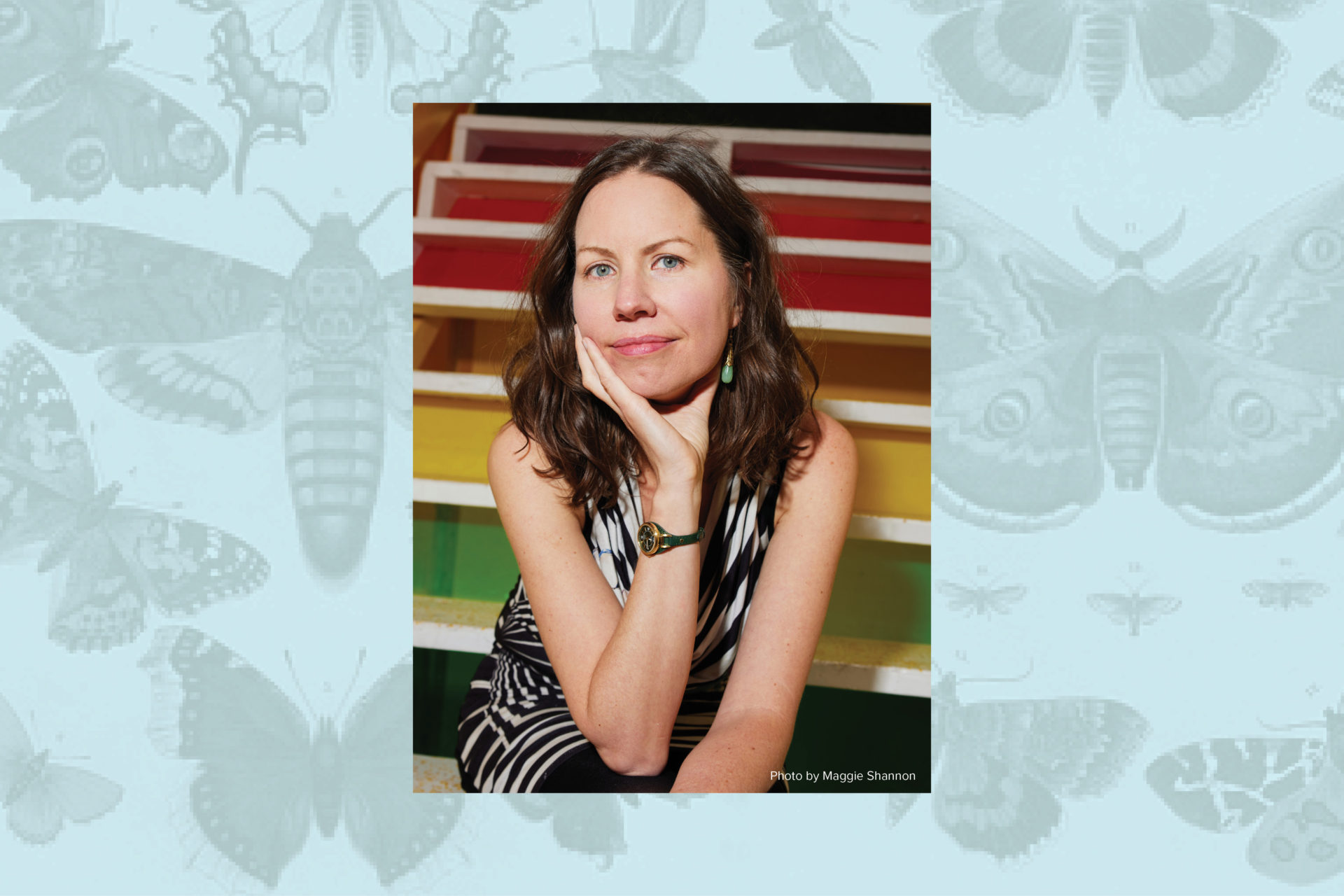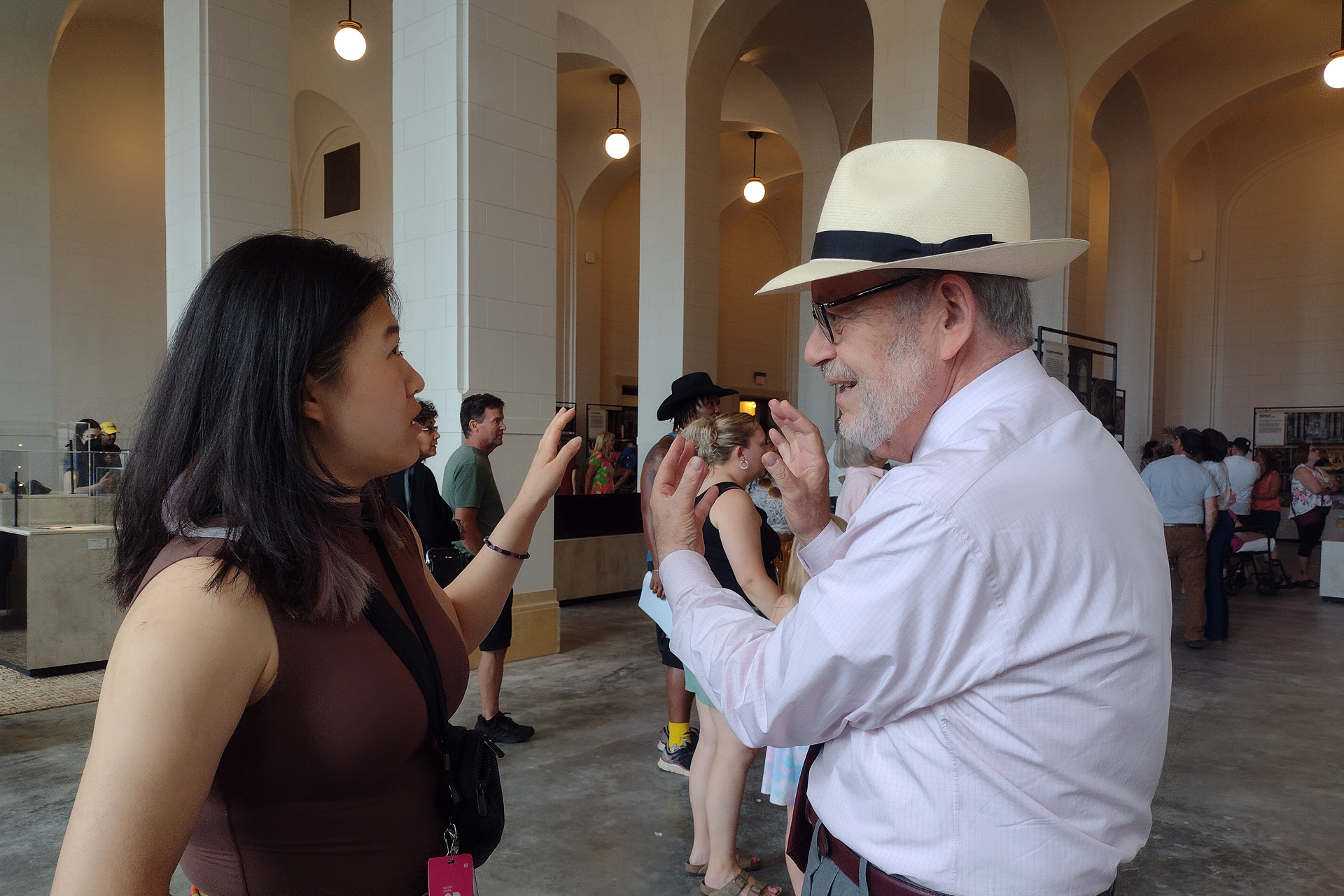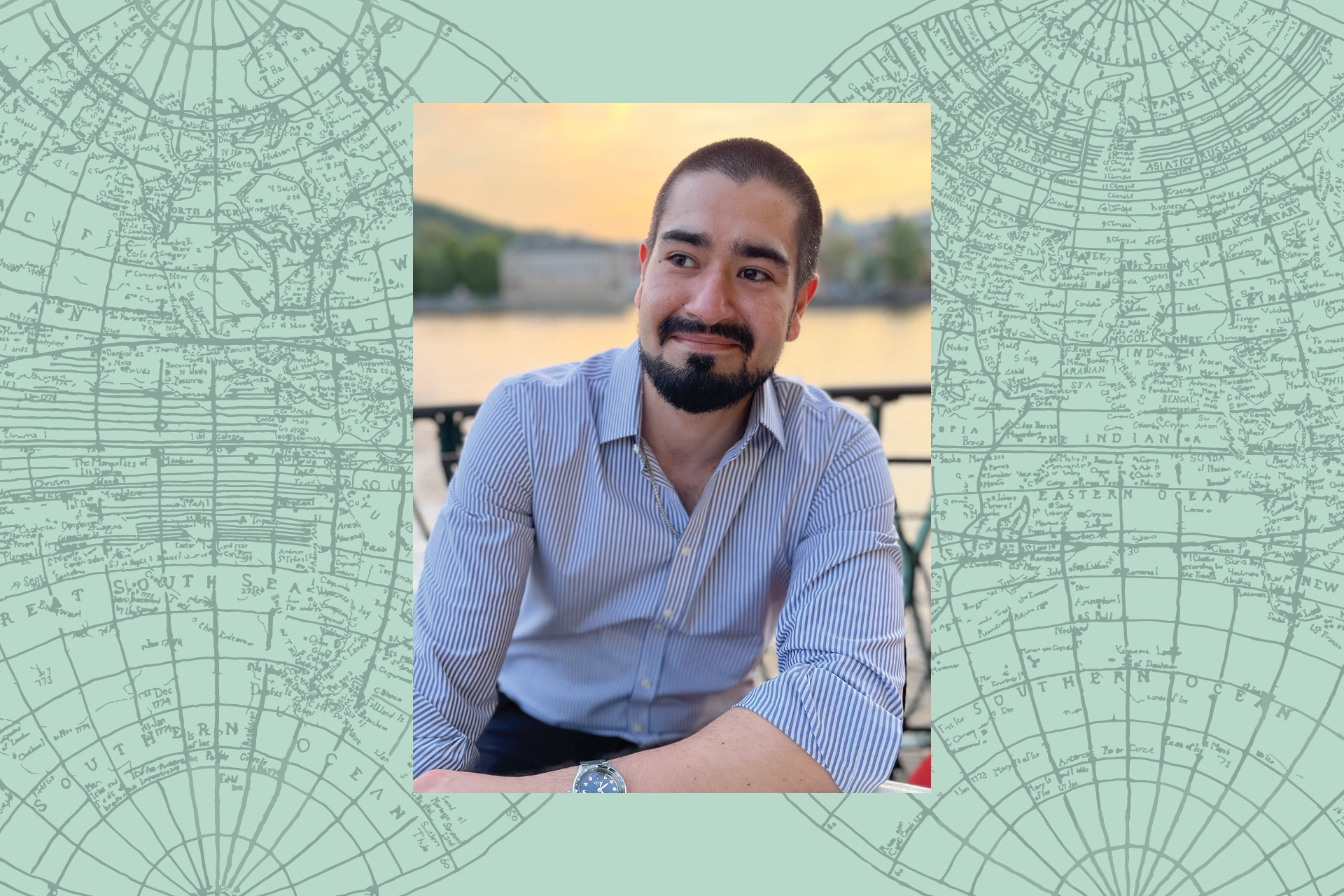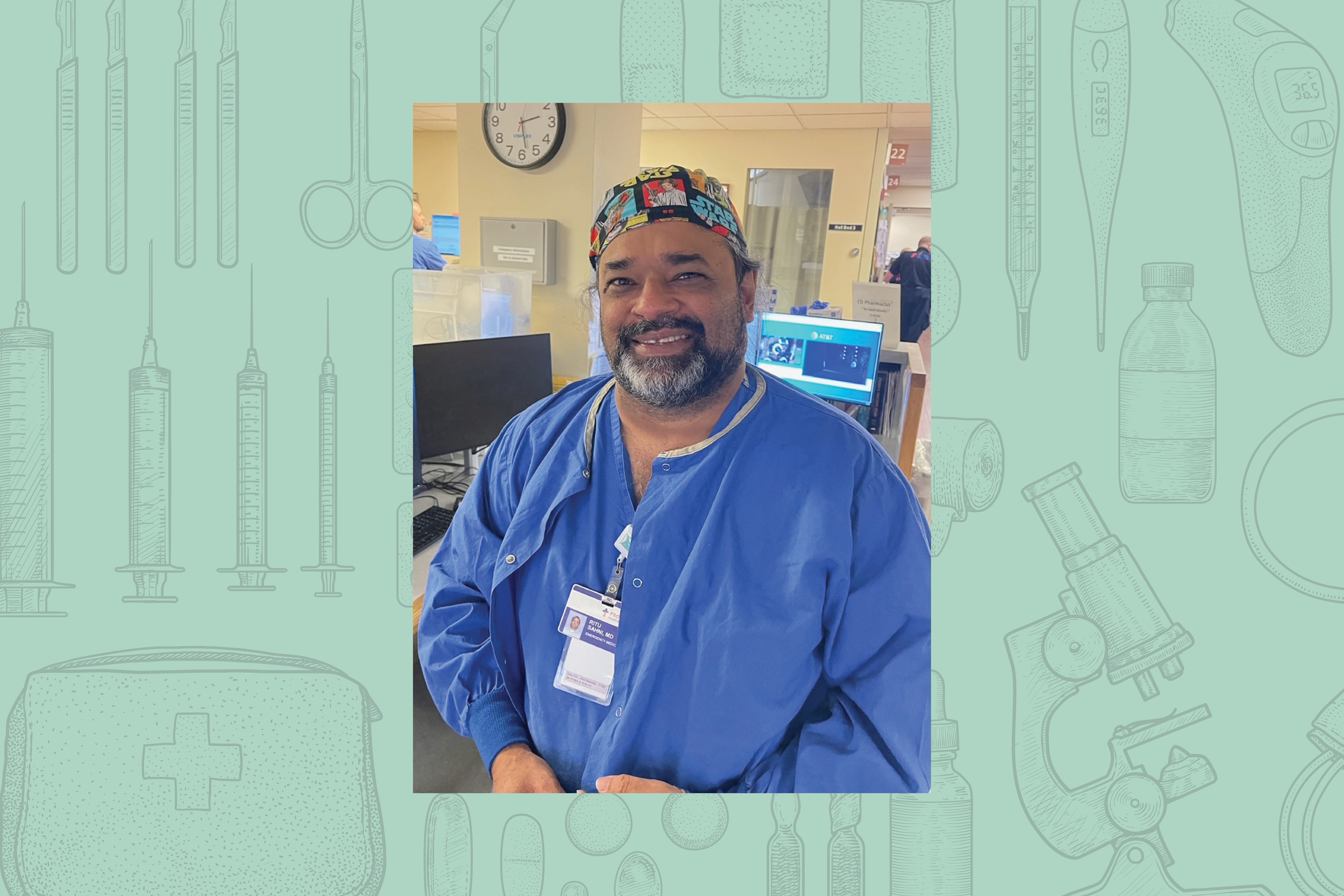KATE SOPER ’99 EMBRACES HER VOICE

By Ben Cohen, Greenhills Choir Director
Kate Soper was sitting to my immediate left in the first class I ever taught at Greenhills, and I noticed almost immediately that her contributions were extraordinary. She delivered not only beautiful singing but emanated an aura of sophistication and excellence.
As the year went on her deep talent mixed with spirited enterprise and unusual compositional skill: she adapted a song from her song cycle for the choir, she wrote music for the Senior Shakespeare production of The Tempest, she took harp lessons for her senior project, culminating in a recital. That she has become one of America’s more important, praised and sought-after composers is not surprising, but exciting nonetheless; it’s buoying to think how Greenhills not only played a part in providing opportunities for her to discover her burgeoning compositional voice and the atmosphere of integrative thinking that so much powers her projects.
I recently asked her some questions about Greenhills’ role in shaping her compositional voice and about her work in general.
In what ways do you think Greenhills helped you become the artist you are?
Greenhills was a great place to be a young artist. It was where I learned that you can take intellectual life seriously, even as a teenager, but also have fun with it, whether that meant composing goofy music about biospheres for biology class or acting out an entire Edward Albee play in Integrated Public Speaking. And the encouragement I received from the faculty led to some amazing musical experiences for which I will always be grateful: Wendy Bloom organized an all-school assembly for the premiere of a song cycle; Jim Posante got me my first professional gig writing music for a play; I arranged a choir piece at the invitation of Ben Cohen. I was also inspired by my brilliant and wonderfully supportive Greenhills friends, three of whom came to LA last spring for the premiere of my latest opera!
I love the way you integrate literacy and drama in your work, both as a composer and as a vocalist.
Drama and literature have been obsessions of mine for at least as long as I’ve been making music. One of the coolest things about being a composer is that music can accommodate any other interest you might have. I love that I didn’t have to choose between composing, writing, and making theater, and I love the delicious complications that can arise from the interaction of these disciplines.
Your music explores the voice in a variety of thoughtful ways. You seem to see it as an instrument of great and expansive power, and your compositions often fluctuate between screams, or short utterances and lyrical expressions of line. How did you discover this non-traditional approach to writing for the voice?
I’ve always loved to sing but never had one of those spectacular voices (I was at Greenhills at the same time as two students who literally went on to become opera singers, so those voices were around!). It wasn’t until after Greenhills that I started to really dig into the power and flexibility of the voice in general, and to embrace my own voice with all its idiosyncrasies. That the voice is a musical instrument but also a means of everyday communication and a literal part of the human body is one of those obvious facts that seems weirder the more you think about it. Several of my works (my opera “Here Be Sirens” and parts of “Ipsa Dixit” and “The Romance of the Rose”) explicitly investigate this perplexing state of affairs.





